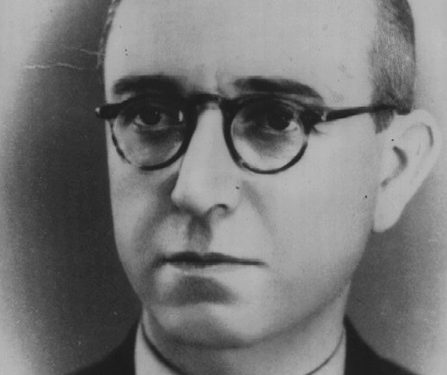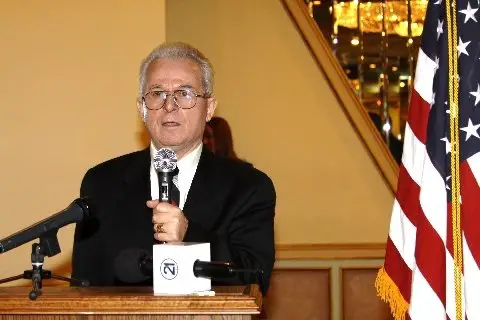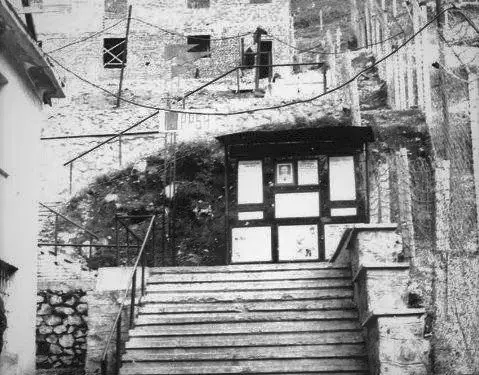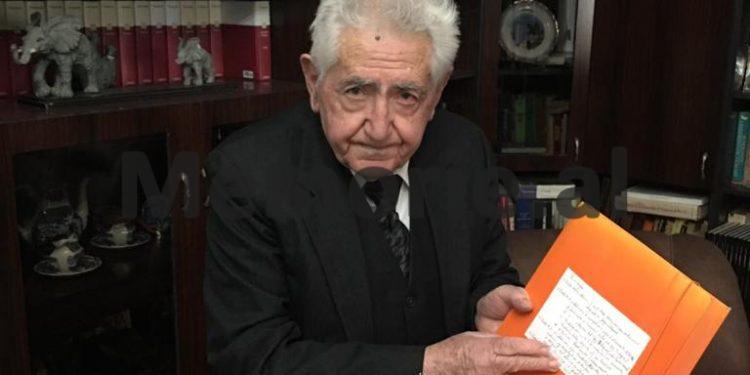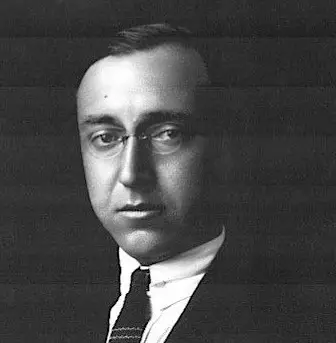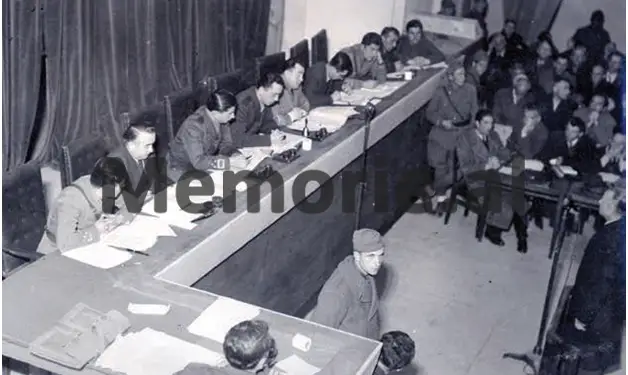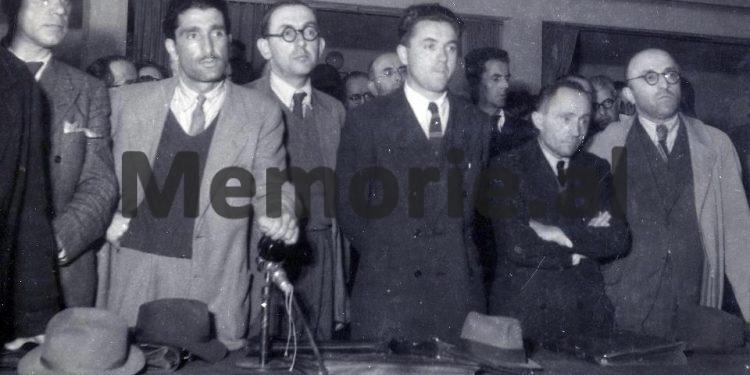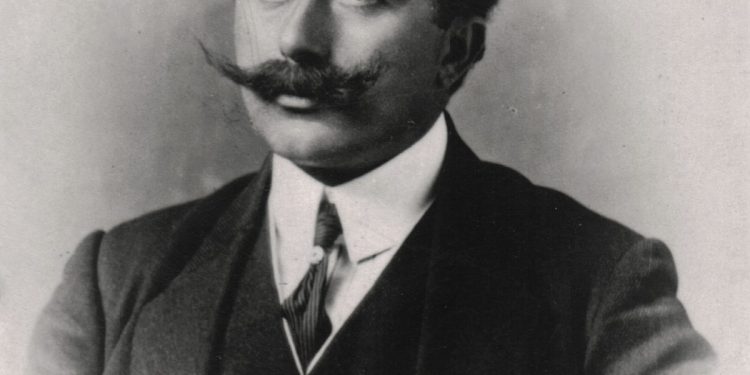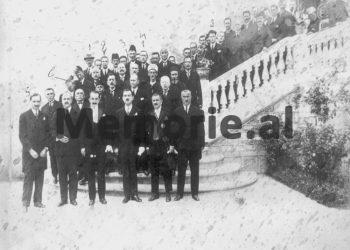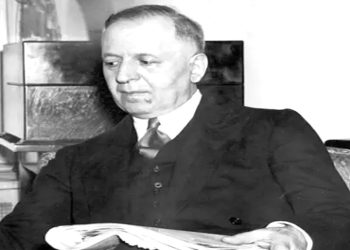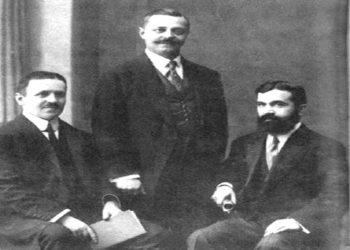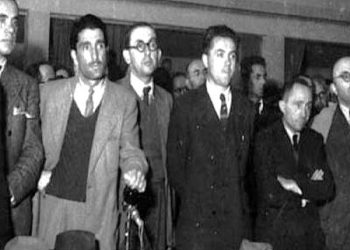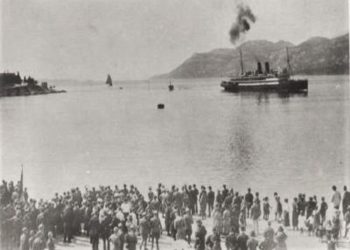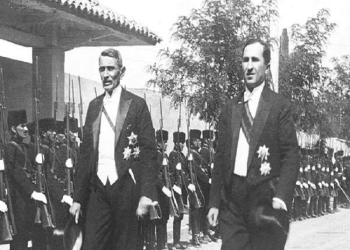By Prenjo IMERAJ
The first part
Memorie.al / The infamous communist castle prison of Burrel will remain in the history of the Albanian nation as a black stain, where some of the best sons, the most nationalists, were imprisoned, suffered the horrors of inhuman torture, died and were buried without graves loyalists, the staunchest anti-communists and the most educated intellectuals in the most renowned universities of Europe and beyond. There, apart from Xhevat Korça, Koço Tasi, Vissarion Xhuvani, Mihal Zallari, Sokrat Dodbiba, Gjergj Kokoshi, Salih Vuçiterni, Sami Bitincka, Nino Kurti, Aleksandër Çurçia, At Pjetër Mëshkalla, Dom Shtjefën Kurti, Gjon Shllaku, Tefik removed the black olives. Mborja, Hysni Alimerko, Tahir Hoxha, Leonidha Kume, Qemal Vrioni, etc.
Mr. Tomorr Dosti, a former political prisoner in Burrel prison, living in Tirana, says: “We were walking through the ‘pajtoz’, during the walk, together with the late Engjëll Çoba. One of the prisoners approaches us and tells us that Xhevat Korça had announced a hunger strike. It fell on us like a bomb! When the Angel gathered him, he spoke:
We are losing a great nationalist. When Xhevati says the word, he does not take it back”! But who was this man, about whom all the political prisoners were worried, while the prison directorate, taking it as a joke, initially remained silent?! This man was Professor Xhevat Korça, born in Korçë on January 10, 1893. After primary lessons in his hometown, he attended the gymnasium named after Ioannina.
Protected by feelings of patriotism, he became active with a gun in hand, in the freedom-loving squads of Themistokl Gërmenji and Spiro Bellkamen, fighting against the Turkish invaders and the chauvinist squads of the Greek Andarts, who occasionally committed inhumane crimes against the inhabitants of the Albanian territories. Participation in those detachments would cost Xhevat the death penalty, both from the Turks and from the Greeks.
After the declaration of Independence, thanks to the interest of Themistokli Germenjit, supported by Bajram Curri, together with several other boys, they were sent by the Albanian government at that time to study in Vienna, where Xhevati was enrolled in the Faculty of Historical Sciences. The final result of those studies was of the highest degree. During those studies Xhevat Korça did not separate from the patriotic activity.
On December 15, 1918, Xhevati together with other Albanian students, such as; Jani Basho, Remzi Baçi, Nush Bushati, Raqi Buda, Fuad Asllani, Gjovalin Gjadri and Luigj Kakariqi, sent a plea to the American president Willson, to take the rights of the Albanian nation in hand. In 1922, Xhevat Korça was commissioned by the Albanian government in Shkodër, to establish the secular state high school of that city, activating in that high school, among others, the professors:
Anton Paluca, Kostaq Cipo, Kolë Margjini, Gabriel Meksi, Gjergj Kokoshi and Simon Rrota. As a supporter of Fan Noli’s government, after Ahmet Zogu came to power, Xhevat Korça and his whole family were forced to leave Albania and immigrate to Belgrade. Finding there the scientific support of prof. Henrik Bariqit, who was an outstanding Albanianologist, was initially assigned as a lecturer of the Albanian language, in the course-seminar of that professor.
In 1925, he was appointed lecturer of Albanian language and literature, while in 1927-’28, he held the course “Albanian language for beginners”. After three years of staying in Belgrade, it became impossible to stay there any longer, as Zogu had twice sent people to carry out assassinations. He settled with his family as an immigrant in Vienna, where he continued his persistent and tireless work in translating the documents of the Austrian State Archives, which shed light on our national history, for which he worked for ten years in a row. (The documents translated under the title “Acta et Diplomata Austro-Hungaria, are located in the State Archives in Tirana, in the Xhevat Korça fund).
After the assassination that Azis Çami and Ndok Gjeloshi did to Zog in Vienna, Xhevat Korça did everything possible to prevent them from being tried in conservative and monarchical Vienna, where they would be punished more severely, but with his friends, they did the impossibility of the trial being held in any of the industrial cities, in the hope that the republican and democratic public opinion would serve the accused as a defense, so that they would not be punished with the harshness intended. At this time, the brave gesture of Xhevat Korça, who, without batting an eyelash, invited an Austrian lawyer to a duel, caused a great stir.
The journalist in question, not only called Xhevat Korça an agent provocateur, but also described the Albanians who fled Albania in his article as being sold to Yugoslavia. The duel did not take place, because the frightened lawyer publicly apologized to Professor Xhevat Korça, even in the same newspaper and with the same length of writing as the first one. During those days of anxiety, while the brave man’s wife was crying, telling him that she was leaving him on the streets of Europe with a small child, he replied: “Our lives have no value; we let them trample us as Albanians”!
Due to the very expensive life in Austria, during the crisis of the 30s, Xhevati family settled in Fiume, Italy. Although Zogu in those years offered an amnesty to his former opponents, Xhevati remained consistent until the end and did not contradict his liberal and democratic principles. When the Italian radio was communicating the occupation of Albania by fascist Italy, on April 7, 1939, the Italian journalists who went to interview him in his apartment, as an anti-Zogist political immigrant, found Xhevat Korça crying with sobs, for the loss of freedom.
Maintaining moral ethics, he addresses the journalists with wisdom: “Please leave us alone and leave my apartment. You conquered our country”! That same day, Xhevat Korça crossed the bridge that separated the Italian Fiume from the Yugoslav town of Sushak, where the fascist censor could not control the postal services, and telegraphed King Zog, an early political opponent, to open the borders, to allow the escaped patriots to return and defend the homeland together. (These two testimonies are documented by the witness, Mrs. Lejla Bumçi, in the Special Court of 1945, with Koçi Xoxin as president and Bedri Spahiu as prosecutor).
In 1940, he will accept the appointment as a member of the State Council, together with Riza Dan, Sejfi Vllamas, Omer Nishan, Fuad Asllan, Dhimitër Berat, etc., which in fact did not even have a legal function, but only technician. During an evening organized by the Viceroy, with Albanian intellectuals, Xhevat Korça is approached by the Assistant to the Viceroy, Lorusso Attoma, and says:
– “Professor, we expect you now, as an opponent of King Zog’s regime that you were, to write to us about fascism and the good things it is bringing to Albania”.
The situation became honest and, no one in the group where they were, that everyone knew Xhevat, who openly said what he thought. When he spoke, he said:
– “Mr. Attoma, you should know that on April 7, 1939, the tip of my pen was broken”! The intellectuals, among whom Omer Nishani was nearby, were silent. To everyone’s surprise, this man, who after the war became the president of communist Albania, two days later, would write a long article in the “Tomori” newspaper that ended with these words: “When his friend, Mustafa Kruja , was appointed prime minister in 1942, Xhevat Korça accepted the post of Minister of Education, but with two conditions:
1- The Italian language should be removed as a compulsory language from primary schools in Albania and Kosovo.
2- All Albanian teachers, interned as anti-Italians, should be released from the Ventotene internment camp in Italy.
It is understood that after all these events and due to the other fact that Xhevat Korça was once a member of KONARE, the Italian fascists did not trust him. General Dalmazzo, the Commander-in-Chief of the Italian forces in Albania, had issued a very secret circular, to trace him in every movement as a person with communist tendencies, which did not hold at all, since the activity of Xhevat Korça was only an Albanian patriot. Patriot Beso Gega, who begged Xhevat Korça to help him free his daughter, Liri Gega, from fascist prison, telling him that she was only anti-Italian and not communist.
Xhevati intervened with the Minister of the Interior, Mark Gjomarkaj, as well as with Prime Minister Mustafa Kruja, who knew Beso Gega well, as a patriot, to get Liri Gega out of prison. The Prime Minister was very hesitant, as he knew about Liri Gegë’s communist terrorist activity, but still released him. Ironically, years later, when they were together in the new prison in Tirana, Beso Gega addressed Xhevat Korça with all seriousness: – “You’re glad you’re in prison. You betrayed not only your duty, when you released my daughter from prison, but you should have arrested me on the spot, when I intervened for her”!
Xhevati was only surprised by those words, since he did not know that the communist Liri Gega had denied her father. During his activity as a minister, Xhevat Korça did what he had in hand, together with his colleagues, for the establishment of the Institute of Albanian Studies, which, under the direction of Mustafa Kruja, gathered prominent figures, such as; Ernest Koliqi, Xhevat Korça, Anton Paluca, Aleksandër Xhuvani, Lazër Shantoja, Karl Gurakuqi, Anton Harapi, Dhimitër Beratti; etc. The purpose of that Institute was to create an academic core, to serve the science of Albanianology and later the establishment of an Albanian university.
It was the decision of this Presidency, the Institute that we mentioned above, to designate Albanian as the Standard Normative Language of the city of Elbasan, which was legislated as soon as Mustafa Kruja became Prime Minister and Xhevat Korça, Minister of Education, where, with the circular, (No. 61-date February 20, 1942), addressed to all high schools in Albania and, signed by the Minister of Education, Xhevat Korça, were notified to the principals of those schools, about the Albanian Normative Language and were ordered to be used as official texts , Syntax and that of the Albanian language, authored by Father Justin Rrotë.
And one cannot help but talk about how, throughout the dictatorship, the fact was never mentioned, that not a little, but thirty years before what were called the Spelling Congress (November 20-25, 1972), in the schools of In Albania, the unified Normative Albanian Language was taught! The murder of Qazim Koculi in Vlora, pushed Mustafa Kruja and Xhevat Korca to resign in protest, because it was thought that the Italians had a hand in the murder, since Qazim Koculi had been a military commander of the insurgents in the War of Vlora, in 1920.
The arrival of the communist regime in Albania in November 1944, found Xhevat Korça out of politics, in his home in Tirana. He was arrested together with his eldest son, Genci, as the latter was part of the “Besnik Çano” nationalist battalion and had fought in Kosovo against the Chetniks and Yugoslav partisans. In April 1945, Xhevat Korça appeared before the Special Court, presided over by Koçi Xoxe and with prosecutor Bedri Spahiun. His attitude was more than dignified. They accused him of being a traitor and sold to Fascist Italy. Xhevat, full of conviction, addressed the jury:
– “If you find even a single line written, or a word spoken in favor of fascism, from my side, I will accept without even a single objection, the most severe punishment you will impose”!?
– “You wasted F.A.P.I.’s funds”, (the funds of the Ministry at that time), screamed the prosecutor!
When Xhevat Korça presented documents that, from that fund, an additional salary was given to all teachers without exception, both in Albania and Kosovo, the communist prosecutor felt again:
– “You did it to bring teachers closer to fascism”!
Xhevat Korça spoke loudly to the Prosecutor:
– “You have high regard for Albanian teachers, because you think that with a salary, they were corrupted and changed their ideals”!
For Xhevat Korça, the communist jury imposed the death penalty (it was the fourth death sentence, because in addition to the Turks and Greeks, the Austrians had also punished him). In fact, later the capital punishment was returned to him with life imprisonment and he was put in the castle prison of Burrel, which he faced with peerless bravery and endurance, as well as high dignity.
A fellow sufferer, Tomor Aliko, once said: “In 1949, Xhevat Korça was hospitalized in the prison hospital, together with a certain Teme Shehu. A senior Security officer, who went for inspection, says to the prisoners with irony: – “Where are you, Fathers of the Nation…”?! Xhevat Korça, a hazır xevap, replied: – “Let’s leave it to the historians to judge”!
That senior leader in the Ministry of Internal Affairs gave the order and they immediately took Xhevat Korca out of the hospital and sent him back to prison. Xhevat really suffered himself, but he suffered more for his fellow prisoners. In front of his eyes, for every day, the dead paraded, which the gravedigger guards, with a blanket, buried in the infamous cherry tree of the Burrel extermination prison. They were unfortunate boys and old men who could not endure the tortures and terrible conditions of that horrible prison…
The prisoners in the New Prison of Tirana have testified about an interesting conversation held in the cell between Mehmet Shehu and Xhevat, after the ‘Special Trial’, during which they clearly saw not only the courage and manliness of Xhevat Korça, but and his intelligence and culture, compared to that infamous leader of the communist hierarchy. As the Minister of Internal Affairs, Mehmet Shehu himself visited the New Prison. When he got into the cage where Xhevati was, he recognized him and addressed him with these words:
– “Xhevat Korça took it, you were finally convinced that we fought for the right cause, while you were wrong”?! Xhevati replied something about this issue, and then the discussion got complicated by addressing each other; Memet with Xhevat, and the latter with Mr. Minister. Next, they begin to discuss theoretical Marxism. Mehmeti sits on the prisoner’s portable bed and then, surprised by Xhevat Korça’s theoretical preparation in the field of materialistic philosophy, begins to address him as professor.
After that, Xhevati also starts addressing the minister in his name, Mehmet. Not only the prisoners of the kaush, but also the companions of the Minister, did not smoke, but followed the debate with curiosity. After a moment of discussion, it is pushed to the field of implementation of the October Revolution, in the Soviet Union. Mehmet Shehu listens attentively to Xhevat Korça’s discussion and after a while turns to him asking:
– “What about you, professor, how do you know the October Revolution so well”?! He was stunned when Xhevat Korça answered “… Have you, Mehmet, read the book ‘Ten Days that Shook the World’, by John Reed? Well, know that I have translated it”. Then Mehmet Shehu, turns and says; “…Knowing the communist theory so well, how did you make a mistake and not join us”?! Xhevat Korça turns to him and says: “Exactly because I know it so well, both the theory and the application of this theory in Russia, I became a determined anti-communist”! Memorie.al
The next issue follows




